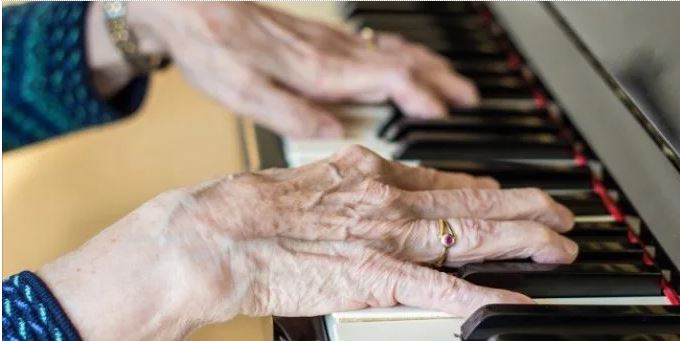The power of music in Alzheimer’s disease
TORONTO – Music has the innate ability to trigger parts of the brain that evoke emotions and memories. Simply take note the next time you hear a particular tune or favourite melody. Does it recall a specific memory?
For people living with Alzheimer’s, music can be an important instrument in helping individuals manage after a diagnosis.
According to the World Health Organization, about 50 million people worldwide have dementia. Alzheimer’s is the most common form of dementia, accounting for approximately 60-70% of all cases.
Last week, the world learned of one more person who is battling the disease – legendary American singer, Tony Bennett. In an AARP (US organization dealing with issues affecting people over the age of fifty, equivalent to CARP) feature piece, Bennett (born Anthony Dominick Benedetto, grandson of Italian immigrants from Calabria) and his family went public with his battle, years after the diagnosis in 2016.
Alzheimer’s is a progressive, irreversible neurologic disorder. It causes a continual decline in thinking, remembering, behavioural and social skills. As these cognitive functions decrease, they interfere with a person’s daily activities. Gradually, individuals develop severe memory impairment which affects their ability to function independently.
Furthermore, there is no known treatment that cures the disease or alters its process in the brain. However, some medications may prove helpful in slowing the rate of cognitive decline. Other alternative treatments, like music therapy, diet and exercise can improve one’s quality of life.
According to Dr. Jonathan Graff-Radford, neurologist at the Mayo Clinic, research suggests that listening to music or singing can provide emotional and behavioural benefits. Music can be helpful to patients living with Alzheimer’s because it can reduce agitation, stress, anxiety and depression.
Although more studies are needed to better understand how music therapy affects different people. It can be a useful tool to help connect with loved ones diagnosed with the disease.
Interestingly, music memories are often preserved in people with Alzheimer’s. Dr. Graff-Radford says this may be so “because key brain areas linked to musical memory are relatively undamaged by the disease”.
This is evident in the case of 94-year-old Bennett. He continued to deliver flawless sets right up until March 11, 2020, his last public performance.
When the Covid-19 pandemic hit, life became much more difficult for everyone, especially those living with Alzheimer’s. Largescale lockdowns, increased isolation, heightened stress and limited access to medical and social supports can exacerbate symptoms and have a negative impact for those with the disease.
Bennett’s neurologist, Dr. Gayatri Devi, told AARP, “his memory, prior to the pandemic, was so much better.” Although, Bennett does experience other cognitive issues, she adds, “other areas of his brain are still resilient and functioning well”. Speaking of Bennett’s condition, Dr. Devi added, “he is a symbol of hope for someone with a cognitive disorder”.
Despite the lack of social interaction and inability to perform publicly, part of his therapy includes rehearsing a 90-minute set twice a week.
His talent, smooth vocals and charming smile has captured audiences of all generations and there’s more to look forward to. A follow-up album to 2014’s “Cheek to Cheek”, a collaboration between Lady Gaga and Tony Bennett is scheduled to be released sometime this spring.
Fear and a lack of understanding about Alzheimer’s can be a significant obstacle to well-being and a better quality of life for all people impacted by the disease.
Greater public awareness, further research in effective treatments and therapies may help discover ways to improve the quality of life for those living with the disease. And hopefully, one day, there will be a cure, until then, let the music play.




